What is Difference Between Aged Bark and Compost?
westes Zone 9b California SF Bay
2 years ago
Featured Answer
Sort by:Oldest
Comments (35)
westes Zone 9b California SF Bay
2 years agoRelated Discussions
Difference between compost & mulch
Comments (12)Compost is a 'what', mulch is a 'where'. Mulch is material, organic or non-organic, that is placed on the top of soil. For purposes of retaining moisture, keeping soil from drying out, to make it easy to pull the weeds that will sprout, to slowly release nutrients to the soil, etc. If you dug this top layer of material into the soil after a while, it would no longer be considered mulch. Examples of mulch would include compost, wood chips, shredded leaves, bark pieces. Non-organic examples might include lava type rock and shredded rubber tires. I was going to included shredded paper as a non-organic product, but thought better of it. Compost is organic matter that has been broken down into useful stuff plants can use. Many folks on this forum will choose to make compost as opposed to buying it. Shredding trees to make mulch is simple, making a decent compost product is a bit harder and certainly takes longer. You might ask how long does it take to make compost, and receive replies from 14 days to over a year. The latter is a more accurate than the first number. Even though I try to make a 'hot' compost pile, with a core temp of 130 to 140F, it takes me three or four months to get a material I consider ready. I previously used the word 'finished', but this was a very bad choice of terms. Vendors of bins, tumblers, and composting systems often give numbers like '14 days' or 'ready in 30 days' for the products they hope to sell. Gardening magazines and web sites offer more realistic lengths of time from one month to one year. I read once that one guy made compost in three days in a test tube, but would not care to use it even if it was affordable. I reread the FAQs, and think we need to have simple defnitations of the terms Soil, Mulch and Compost at the top of the FAQ list....See MoreInteresting Difference Between Worm Compost and Hot Bin
Comments (4)you might find that your compost gets hot fast, but that doesn't mean the grounds are getting hot - coffee grounds are difficult to keep moist enough to have any microbial decomposition take place, and in fact are only about 1.5-2% N according to all the figures I've seen - meaning if adding coffee grounds heats up your compost, what you need is more coarse materials to provide areation, and I'd bet that coarse sawdust might do as well I've composted large amounts of coffee grounds for long periods [from coffee bars], and have held coffee grounds, with filters [Carbon] in buckets and get no reaction other than all the water settles out, and sometimes mold grows on top if it stays damp - the molds are an indication of hi carbon material .... high N materials, like fresh grass clippings, never stay inactive in buckets, but turn into a stinky mass that heats quickly and loses heat quickly the ammonia smell is from the anaerobic digestion of N, which could be overfeeding, but more likely lack of air with excess of N in a mass Bill...See MoreWhat is the real difference between Compost and Humus?
Comments (0)This discussion has come up many times on this site on the Soil/Compost and Organic Gardening forums. When is organic matter "compost and when is it humus? Here are some of the responses by some of our OG experts and friends on this site. The following are just a few resonses in a recent discussion: BILL_G: "Humus is the stable, long lasting remnant of decaying organic material. It improves soil structure and increases water retention. It's nutritive qualities include trace elements and several important organic acids but do not include nitrogen or phosphorus" IANN: "Mature compost is still organic matter and can be used when your planting instructions request it. Organic matter that hasn't decayed as far as compost shouldn't normally be used directly on plants because the nutrient balance and pH can get all out of whack as it decays (too much nitrogen in fresh manure, or nitrogen depletion as woodchips decompose) and because it may still contain toxic substances (fungal diseases, weed seeds, or toxic bacteria). You are right, humus has no nutritive value. It's also impossible to get hold of since it can't be manufactured. It also can't be produced from decaying organic matter in a reasonably pure form on any sensible timescale. Lastly, we don't know exactly what humus is chemically so while you may find stuff sold as "humus" or "humates" or something similar, its buyer beware, you really have no guarantees about what is in the bag. Humus is good because it has extremely high absorption abilities. It can hold and release water and nutrients as needed. It also improves the physical structure of soil so that it is crumbly and aerated instead of a nasty clay mess or an arid beach." KELLY_CASSIDY: "A lot of confusion is created by different uses of the words "organic" and "humus." To a scientist, an organic molecule is a molecule that contains carbon. All life is based on carbon compounds, so living and dead cells are loosely refered to as organic material, even though they also contain inorganic molecules like water. Leaves, mushrooms, trees, live rats, dead rats, fish, etc. are "organic material." "Organic gardening" is a vague term that means many things to many people. The source of the term is probably that "organic gardeners" tend to avoid adding nutrients in their inorganic form. To a soil scientist, "humus" is the organic, non-cellular, long-lasting component of soil. It is organic because it is composed of chemicals containing carbon. It is mostly extremely stable carbon compounds with no phosphorus or nitrogen. Their stable form makes them difficult to break down by microorganisms. If humic compounds had N or P, micro-oragnisms would try harder to attack them, but since they don't, they aren't worth the effort. Humus is non-cellular because everything else in the cell breaks down and gets recycled into other organisms, leaving the humus in the soil but no longer within a cell. The term "humus" gets tossed around loosely by gardeners to mean the organic material that makes soil brownish, not all of which is humus. In nature, humus accumulates in soil because it lasts for hundreds or thousands of years. (Trivia: In a typical northern deciduous forest, most of the organic material in the forest is in the soil NOT the living trees and most of the organic material in soil is humus. That's because humus hangs around for so long.) Humus often lasts in soil until a hot fire burns through the soil. "Compost" is a matter of location and planning. Anything living starts decomposing when it dies. You call it compost when you put it in a pile and WATCH it decompose. " LYCOPUS: "Compost can contain humus at any stage. Humus does not occur alone in soil. I put the following together to the best of my ability to explain the distinction...corrections welcome In the strictest sense humus is made up of humic substances composed of Carbon, Oxygen, and Hydrogen. These include humic acids, fulvic acids, and humins. Some Nitrogen may be present but not in any significant quantity. Plants obtain those first three elements by means other than soil so "pure" humus has no significant nutritive value. Mature compost is not pure humus, it also contains carbohydrates, lipids, and amino acids, not to mention living organisms feeding on the remaining undecomposed or partially decomposed material (can't expect them to eat it all at once!). Many of these contain Nitrogen that is released gradually over time. Not all organic matter in compost will be at the same stage of decomposition at any given time. Humus or even soil organic matter in general isn't perfect soil. There is no such thing as the perfect soil because needs of plants vary. Generally a good soil contains a combination of sand, silt, clay and organic matter. For the purposes of gardening, agriculture, and even some soil science humus is considered to be synonymous with soil organic matter. This is the non-mineral portion of soil. So when a gardener talks about adding humus to soil they mean leaf mold or compost. When scientists talk about humus they have big numbers and formulas in their heads." deusexmachina: "The definitional problem here is actually quite easy to resolve. It is the standard distinction between colloquial usage and scientific usage. Colloquially, if you add mature compost, or even immature compost, to soil, the resulting mix is humus. The same can be said of adding lemon juice to crushed sesame seeds, but that is a different story. When actually studying soil, however, it is important to make sure that everyone is on the same page with their definintions, and that those definitions offer enough destinctions with other terms to provide a useful purpose, or else why use them. To this end, soil scientists break up the components of soil into categories. The portion that is the stable organic component is then refered to as humus, the portion that it is sand, clay, and related particles is silicates, the OM that is still decaying is, surprisingly, decaying organic matter. A simple way to look at this from the scientists perspective is to think of potting mix made from 1/3 peat, 1/3 compost, 1/3 sand or perlite. Peat is pretty much in its final state. It may have been that way for thousands of years, and may continue to be. Peat is humus. The compost, even if mature, is still breaking down and supplying nutrients. It is the decaying OM. The sand is the silicates. Normal soil has these fractions mixed together to differing degrees, and to make up for local deficiencies in one or another based on the types of plants you are growing, you ammend your soil. The benefit of compost is thus two-fold. First, it has the immediate effect of adding nutrients and bacterial components that aid in soil conditioning. Second, as the seasons progress, it eventually converts to humus and increases your humus count. Thus compost, over several seasons, can often be used by itself for growing, but there are some exceptions. Cacti, for instance, will not appreciate a soil made exclusively from compost and its humic derivatives. Without significant silicates or their equivalent, they will die. The distincion mentioned by Kelly between "organic" as used by science and "organic" as used by gardeners is another story, and a pet peeve of mine. The distinction stemmed from a long-ago disproven belief called vitalism that maintained that organic molecules, carbon compounded with other elements (just having carbon is NOT the sole criterion, else diamond would be considered organic and it is not, and so would CO2, which also isn't) HAD per se to be manufactured by living things, that organic molecules were somehow different from other chemicals by virtue of possessing a force vitae. This belief was utterly overthrown in 1828 when Friedrich Woehler published a brief paper describing the synthesis of the organic compound urea, formerly isolated from urine, from ammonium cyanate via: (NH4+)(-OHN) ---> O=C(NH2)2. This laid the ground work for the dismantling of the concept of vitalism in chemistry, but not in the popular mind, and the idea still permeates modern society and gardening lore. Chemisty then split into two branches, biochemistry, which studied the actual chemistry of life, and organic chemistry, which studied the properties and interactions of carbon compounds. When many people say "organic" they really mean "biologic". This sloppiness is important, as many highly toxic substances are "organic," and mistaken beliefs that organic compounds are safe, just because they are biological, is a natural by-product of clinging to vitalism. So, all that being said, here is a quick primer: Organic matter - stuff that came from biological sources (should be biological matter. Diamonds and graphite don't decompose!) This includes humus, mature compost, immature compost, freshly cut plants, live plants, etc. Humus - (soil science) that portion of the soil that has fully broken down and is thus stable. This stability is important because it allows you to remove it from consideration in a lot of investigations, and this is why soil sciences define it this way. This, incidentally, is also why its constituents have not been subjected to rigorous scientific investigation. It is not that it is somehow mysterious or has magical properties that elude investigation, it is just that it is only recently that anyone has really bothered to think about applying modern analytical techniques to this fraction of the soil. Contrary to common belief, a large number of its constituents ARE known. Their relative proportions vary from implementation to implementation, however, and thus no simple answer is really forthcoming as to "what humus is," as it is a dynamic mix of substances. humus - (colloquially) The organic portion of the soil (you can see how this definition has use for the gardener, but is too impercise for much usefulness in an investigation of soil properties.) Compost - organic matter in a purposeful state of partial decomposition. The purposeful part is important. Dead stuff on the ground is NOT compost, just decaying orgainc matter. It is the controlled, or semi-controlled conditions that make it compost. Immature Compost - compost that has not undergone enough decomposition to be of maximal benefit. This definition is thus use-specific, but usually implies insufficient pathogen destruction, lack of friability, poor moisture retention, active generation of metabolic gasses. Primarily still in bacterial stage of decomposition. Mature Compost - compost that has decomposed to the point of maximal usefulness. Usually in the fungal/actinomycete stage. So all mature compost is organic matter, but not all organic matter is mature compost. If what you are after is soil conditinoing alone, then the terms humus and mature compost are all but interchangeable." FIELD: "One more important attribute of humus should be listed, in addition to improving soil structure (or texture) and water retention. Humus also has a high cation exchange capacity, which means it acts as a veritable storehouse for plant nutrients, something that can be especially important for those with sandy soils." ****************************************************** So what do you think? (LOL) Happy Gardening!...See MoreOrchid Pine Bark And Pine Bark - What's The Difference Please
Comments (2)I believe it's just finely chopped pine bark used for potting orchids.Should be ok to use but might be worth seiving the really small bits out(under 1/8")so it doesn't impede drainage :)...See MoreJohn D Zn6a PIT Pa
2 years agolast modified: 2 years agowestes Zone 9b California SF Bay thanked John D Zn6a PIT PaJohn D Zn6a PIT Pa
2 years agogardengal48 (PNW Z8/9)
2 years agowestes Zone 9b California SF Bay
2 years agowestes Zone 9b California SF Bay
2 years agogardengal48 (PNW Z8/9)
2 years agolast modified: 2 years agowestes Zone 9b California SF Bay thanked gardengal48 (PNW Z8/9)westes Zone 9b California SF Bay
2 years agowestes Zone 9b California SF Bay
2 years agochadinlg Zone 9b Los Gatos CA
2 years agowestes Zone 9b California SF Bay thanked chadinlg Zone 9b Los Gatos CAwestes Zone 9b California SF Bay
2 years agowestes Zone 9b California SF Bay
2 years agowestes Zone 9b California SF Bay
2 years agochadinlg Zone 9b Los Gatos CA
2 years agowestes Zone 9b California SF Bay
2 years agowestes Zone 9b California SF Bay
2 years agowestes Zone 9b California SF Bay
last yearwestes Zone 9b California SF Bay
last year
Related Stories
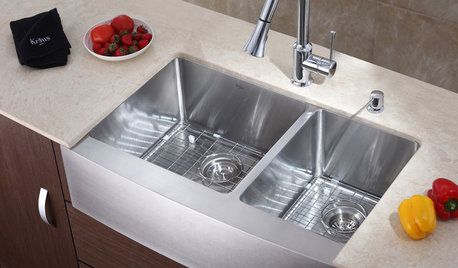
MOST POPULAR8 Little Remodeling Touches That Make a Big Difference
Make your life easier while making your home nicer, with these design details you'll really appreciate
Full Story
UNIVERSAL DESIGNWhat to Look for in a House if You Plan to Age in Place
Look for details like these when designing or shopping for your forever home
Full Story
DECORATING GUIDESStaging vs. Decorating: What's the Difference?
Unlike decorating, staging your home isn't about personal style — it's about creating ambiance and appeal for buyers
Full Story
HOME TECHFacebook Meets Fido: Pet Connections for the Digital Age
Three new products let you communicate with your dog or cat while you're at work
Full Story
KITCHEN DESIGNWhy You Might Want to Give ‘Bokashi’ Composting a Try
Turn kitchen scraps into gardening gold with this low-maintenance, space-saving method
Full Story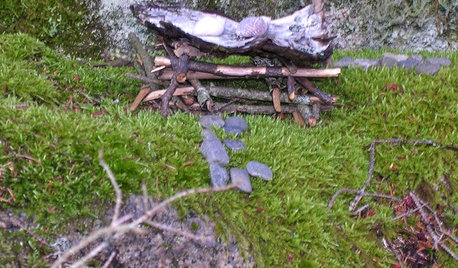
FUN HOUZZSomething a Little Different: Fairy Houses
Miniature abodes crafted for otherworldly creatures capture the imagination
Full Story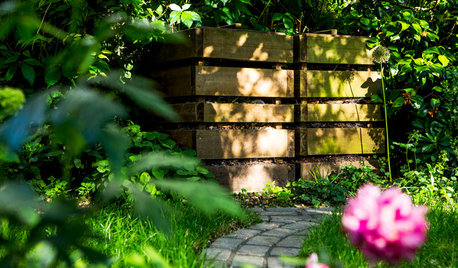
GARDENING GUIDESProfessional Tips for Making Your Own Compost
Learn how to create a free supply of nutrient-rich soil for your garden with expert advice from Houzz landscape pros
Full Story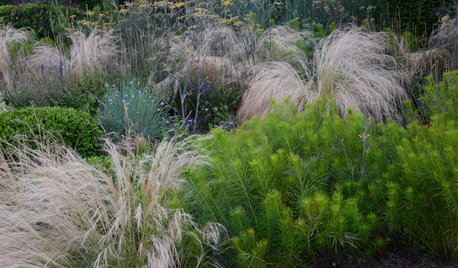
GARDENING GUIDES4 Ways to Break the Rules in Your Garden
For a more creative landscape design, take a different approach to planting
Full Story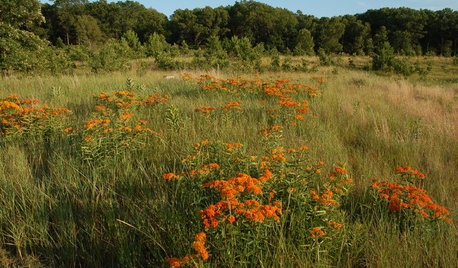
GARDENING GUIDESThe Art of Green Mulch
You can design a natural garden that doesn’t rely on covering your soil with wood and bark mulch
Full Story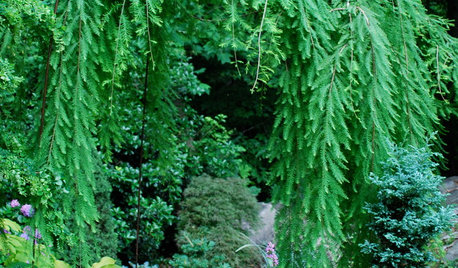
LANDSCAPE DESIGNThe Weepers and the Creepers: 10 Intriguing Trees for Your Garden
Bring something a little different to your landscape with a tree that dives, twists or crawls
Full Story





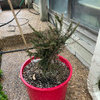

gardengal48 (PNW Z8/9)